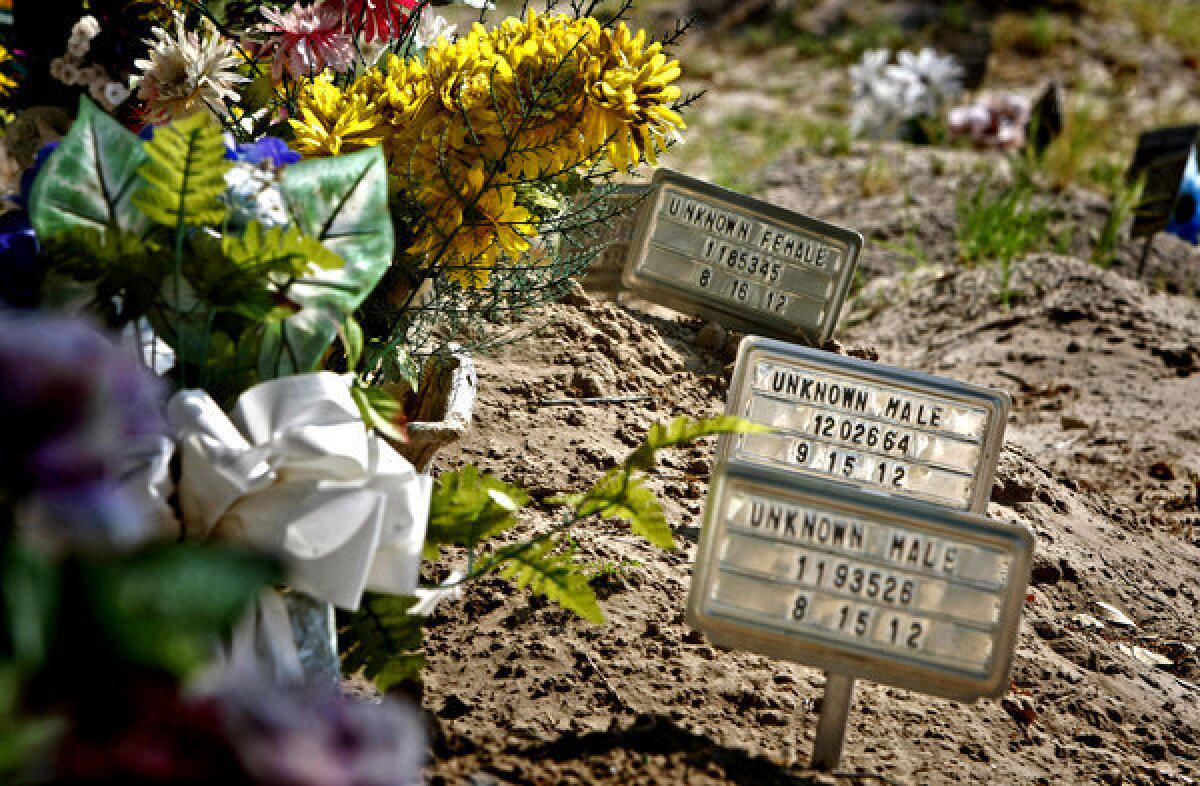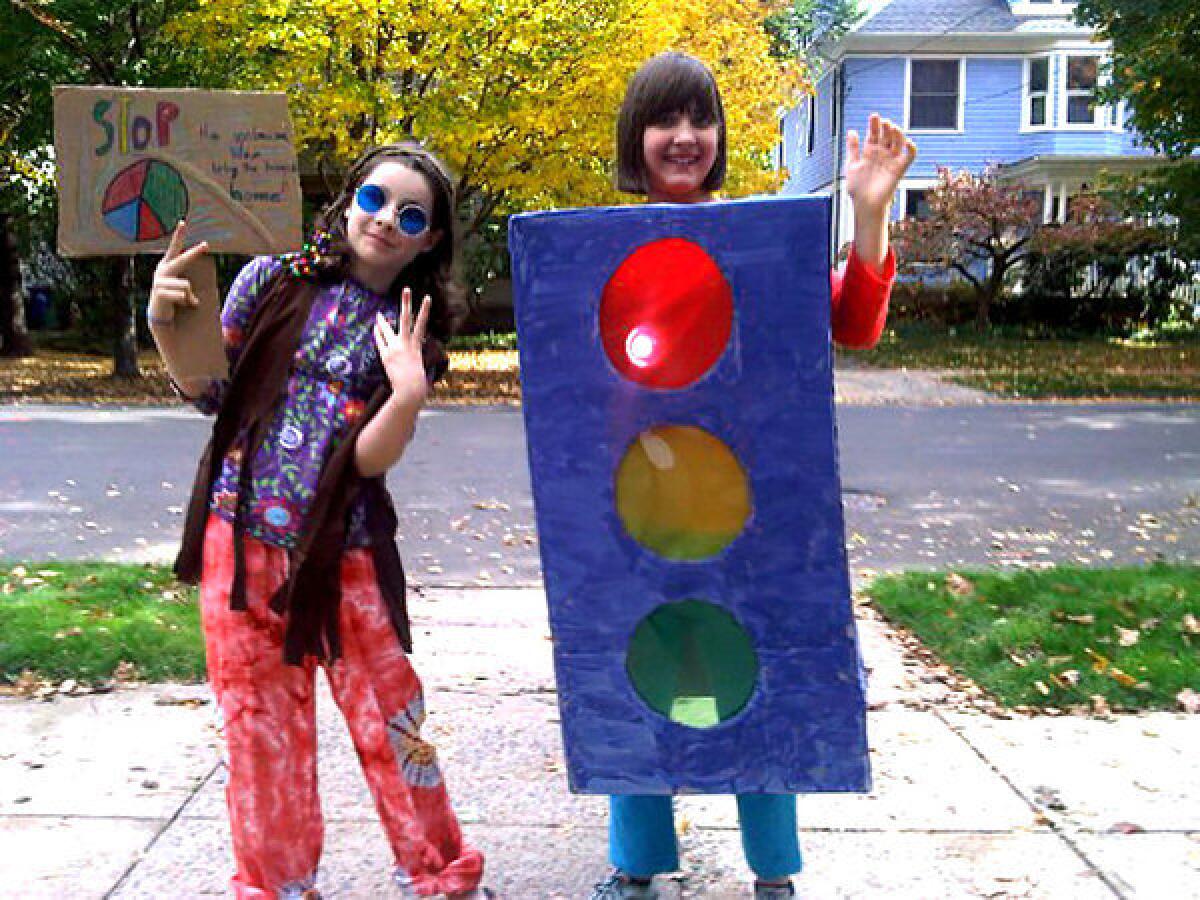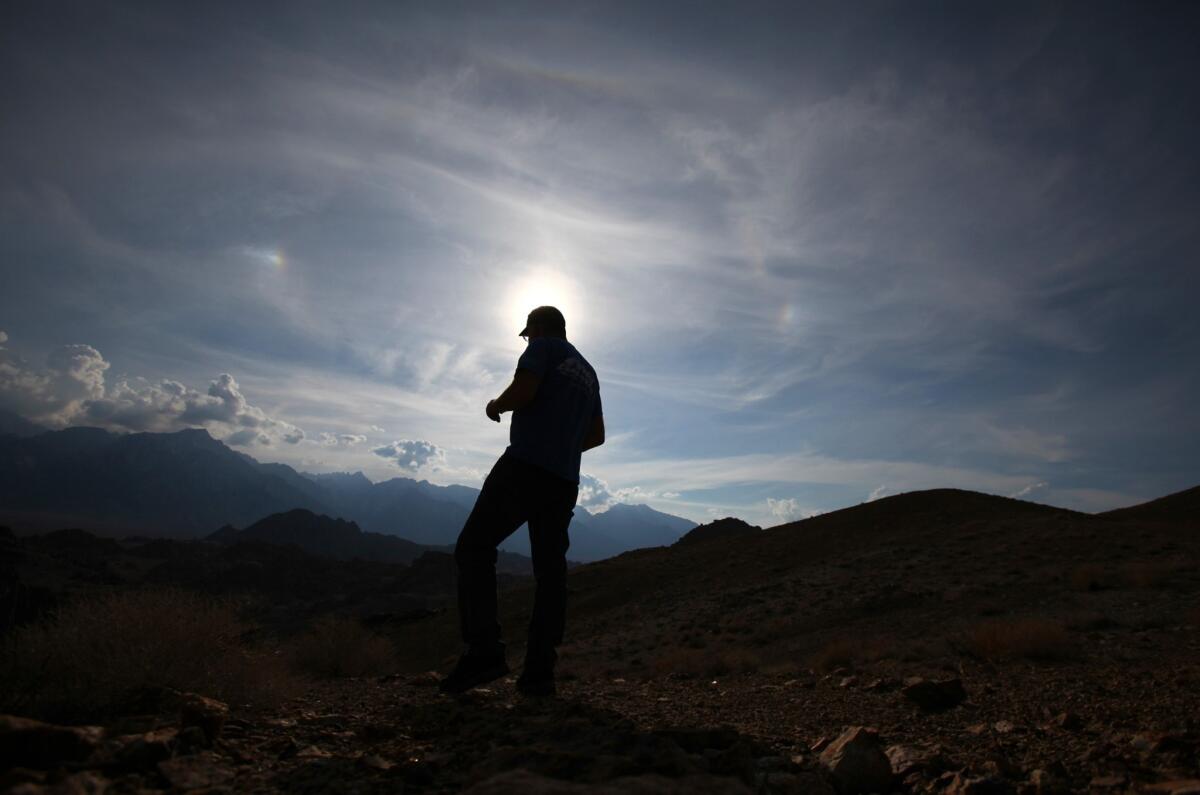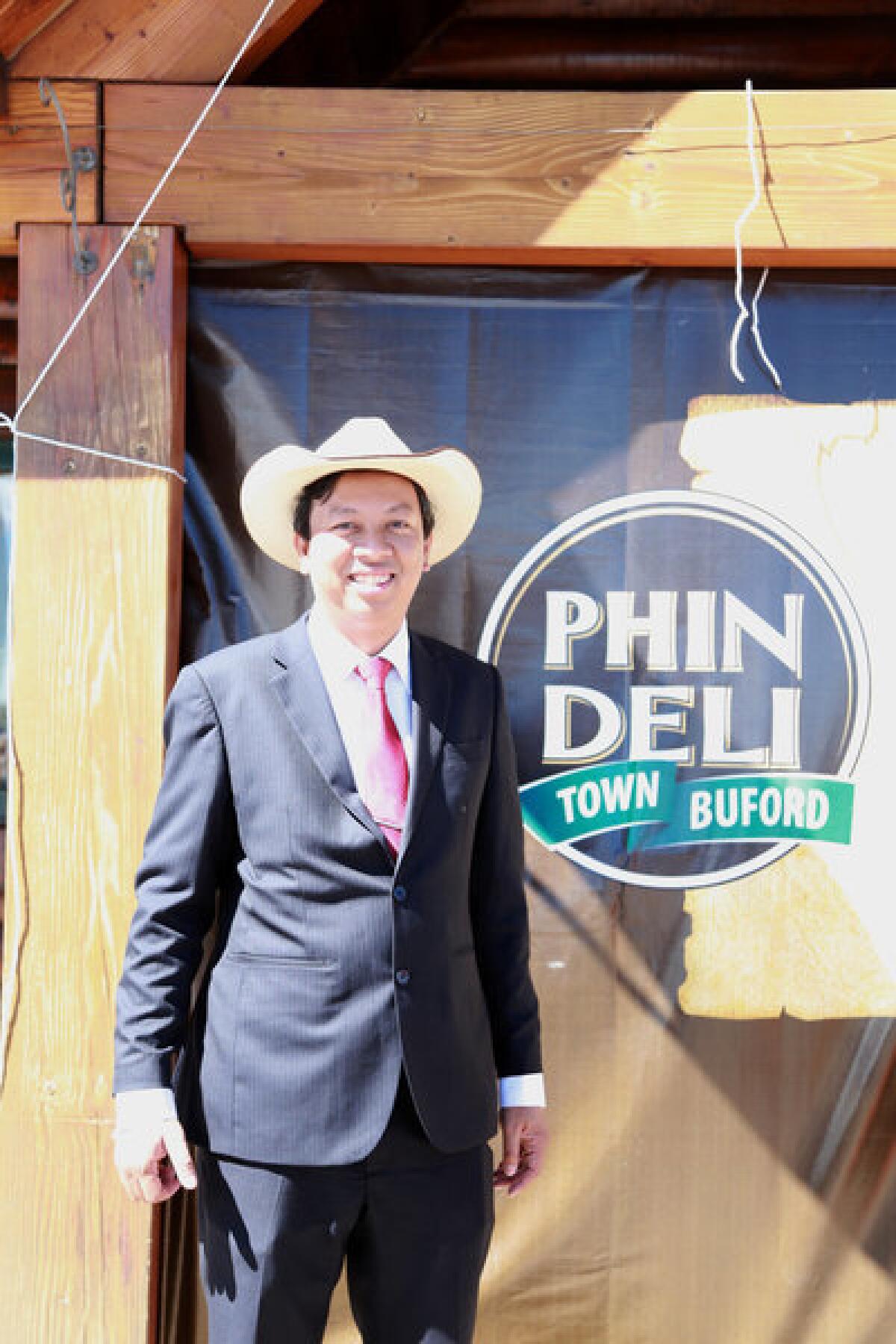Effort to ID immigrants’ corpses is gratifying — and sad
Hundreds of bodies are found along the U.S.-Mexico border. Relatives are grateful for forensic anthropologist Lori Baker’s work to identify them, for bones to bury and graves to visit.
- Share via
The forensic anthropologist lifted a thighbone from the skeleton arrayed on her metal lab table and studied the fine cracks traversing its surface, gray and weathered as driftwood.
Associate professor Lori Baker, 44, set the bone down and cradled the man's skull, its silver canines gleaming. She pointed to the eye sockets; they had been pecked, probably by vultures. Baker had recovered the remains from a ranch near the Mexico border. Judging by the skeleton's size, shape and worn hip joints, she said, it probably belonged to a middle-aged Central American laborer.
Last year, U.S. border officials saw a significant increase in migrant deaths to 463, the second-highest total in 15 years; more than half were in Texas, often without identification.
Many Texas counties do not have medical examiners, so identifying the dead falls to the justice of the peace or funeral homes. Some can't afford the expense of identifying the dead. In one county that has seen a sharp rise in such deaths, it costs at least $750 to transport remains, and another $2,000 for an autopsy.
Baker has made it her mission to meet the need, driven as much by faith as by science.
She opened a lab in 2002 at Baylor University in Waco and assembled scientists and a rotating cast of students who over the last decade have analyzed and extracted DNA from 278 sets of remains and identified 70 of them.
Last summer, Baker and her students took a trip south, expecting to excavate about two dozen migrant remains; instead, they recovered about 120.
She still remembers her first case. In 2003, Pima County, Ariz., had seen a growing number of Mexican immigrants dying in the desert. Baker offered to help. The bones had been found near a voter registration card, which the local consulate used to track down a family who volunteered saliva for DNA samples. Baker extracted DNA from the bones, and it matched.
Rosa Cano Dominguez, 32, was a mother of two from the Yucatan region who had been traveling to work in the Pacific Northwest when she sprained her ankle. She was abandoned by smugglers.
Baker was pregnant at the time and was struck by all she shared with Cano: They were both in their 30s, both working mothers from poor, less-educated families.
"I cried and cried over that case," she said.
"I wasn't sure I could keep doing this, because it disturbed me so much. We're supposed to be detached doing this work, and I'm not."
She imagined what it would be like for Cano's mother and children to hear about her death and lose hope.
When the time came to repatriate the remains, Baker's pregnancy kept her from traveling with her team. Cano's mother mistook another woman for Baker and embraced her.
Hearing the story later from team members, Baker felt relief.
"She just kept saying 'Thank you doctor,'" Baker said.


Aluminum signs and artificial flowers mark the graves of unidentified migrants buried in Sacred Heart Cemetery in Falfurrias, Texas. (Don Bartletti / Los Angeles Times) More photos
Baker is the grandchild of a strict Southern Baptist preacher and was raised in Lufkin, an eastern Texas logging town. She became the first in her family to attend college, graduating from Baylor in 1993 with a degree in anthropology.
She was fascinated by human biology, especially DNA. In graduate school, she specialized in forensics at the University of Tennessee in Knoxville, home to the "Body Farm," an outdoor lab for studying corpses at the university's Forensic Anthropology Center.
She met and married her husband, Erich Baker, a fellow student, and was studying ancient DNA extracted from the hair of Native Americans when she was invited to help identify the remains of people who disappeared in Panama and Peru. As she discussed her work with fellow researchers, Baker found herself talking about migrant deaths on the U.S. border.
"I came home and told my husband we need to do something about this," she said.
About the same time in 2002, Baylor officials called her about a job.
Baylor is a conservative, Baptist university where Scripture carved into the science building reminds professors, "By Him all things are made."
It is hard to look at my sons at night and not cry for all of those who have lost their children."— Lori Baker
When Baker was interviewed, she told college officials she planned to teach evolution and study remains of those who probably had crossed the border illegally. In addition, she was converting to Catholicism, her husband's religion. That didn't trouble Baylor administrators. They just wanted a skilled, Christian anthropologist.
"I feel driven by my faith to do the work I do," Baker said.
At Baylor, with help from her husband, Baker created a database and the Reuniting Families program to gather DNA samples from relatives of the missing and compare them with unidentified remains. The database included DNA records, descriptions of remains, where they were found and objects found with them.
As Baker's team made progress, it heard from relatives who were grateful for closure, for bones to bury and graves to visit. She also worked with the Mexican government to expand its new database of unidentified remains found along the border.
Wondering how loved ones disappeared can be as torturous as knowing they died, sometimes more so, Baker said. The mother of a 15-year-old who disappeared after leaving Mexico for the U.S. years ago still paces his room, longing for news, she said.
"I've had families who call, still looking after 25 years," Baker said.

After the federal government started its own database in 2005 for identifying remains, the National Missing and Unidentified Persons System, known as NamUS, Baker decided to take some time off. She was expecting a third son.
"I needed a break," she said.
Then last year, Texas authorities saw an increase in the number of migrants crossing the border illegally, outpacing Arizona for the first time in a decade. Baker revived her project and headed back to the border with a team of students.
In Del Rio, a small border city about 360 miles southwest of Waco, they unearthed six remains, including an infant and a baby, and sent information about them to NamUs.
Jen Husak, a senior forensic anthropology major from Robinson, Texas, excavated graves with Baker and said she appreciated the anthropologist's empathy.
"I don't have this cold professor. I have someone who really cares," she said.
In May, Baker and her student volunteers traveled to Brooks County, epicenter of the recent increase in illegal immigration and deaths. They worked with funeral home staff members, sheriff's deputies and residents to retrieve remains from ranch land and makeshift burial plots.
Some graves were unmarked. Most had small metal signs with state death record numbers or the ranch locations and dates when the remains were found. Other signs were stamped "unidentified case," "unidentified female," "skeletal remains" or simply "bones." Some remains had been buried in wood boxes, others in body bags or the bare earth.
Brooks County Chief Deputy Sheriff Urbino "Benny" Martinez said local ranchers appreciated the respectful way Baker worked with them to locate and excavate remains on their massive properties.
Baker has also been marshaling added resources, getting help from anthropologists in the military and at other universities.
She still wrestles with the human toll, which she says "hurts my soul."
"It is difficult to see this devastation and speak with grieving families and not feel brutally wounded," Baker said. "It is hard to look at my sons at night and not cry for all of those who have lost their children."
Sometimes, Baker gets to tell a family that remains do not belong to their loved one.
"They rejoice," she said, "but then they call back a few days later and say, 'What now?'"
Follow Molly Hennessy-Fiske (@mollyhf) on Twitter
Follow @latgreatreads on Twitter
More great reads
Trick or treat for science: Kids become test subjects

A lot of people come in ... and they trick-or-treat here and go back to where they came from."
Sign up for Essential California
The most important California stories and recommendations in your inbox every morning.
You may occasionally receive promotional content from the Los Angeles Times.











